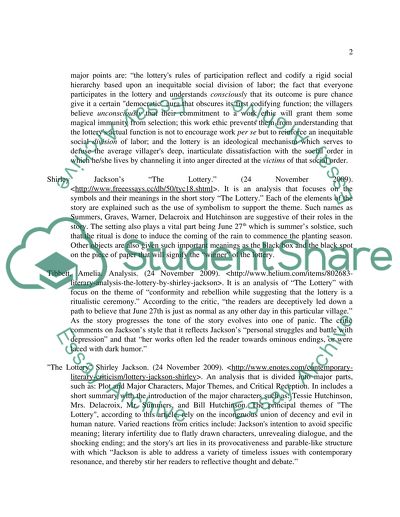Cite this document
(“Shirley Jackson's The Lottery Book Report/Review”, n.d.)
Retrieved from https://studentshare.org/literature/1510156-shirley-jacksons-the-lottery
Retrieved from https://studentshare.org/literature/1510156-shirley-jacksons-the-lottery
(Shirley Jackson'S The Lottery Book Report/Review)
https://studentshare.org/literature/1510156-shirley-jacksons-the-lottery.
https://studentshare.org/literature/1510156-shirley-jacksons-the-lottery.
“Shirley Jackson'S The Lottery Book Report/Review”, n.d. https://studentshare.org/literature/1510156-shirley-jacksons-the-lottery.


